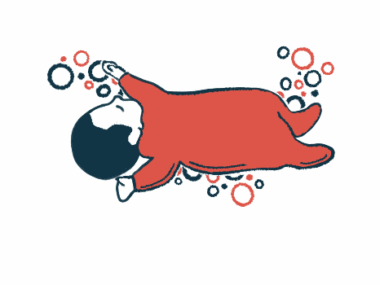CHMP Favors Fintepla as Add-on Dravet Treatment Across Europe
Written by |

Fintepla — low-dose oral fenfluramine — moved one step closer to European approval, following a favorable opinion on its use as an add-on treatment for seizures associated with Dravet syndrome in patients ages 2 and older from the Committee for Medicinal Products for Human Use (CHMP), an arm of the European Medicines Agency.
“We are pleased that the CHMP’s regulatory review of Fintepla for quality, safety, and efficacy has resulted in their positive opinion,” Stephen Farr, PhD, president and CEO of Zogenix, Fintepla’s maker, said in a press release.
The European Commission (EC) is expected to make a final decision on the oral medication’s approval — in the form of a marketing authorization application — by year’s end.
EC authorization would make Fintepla available in all European Union member states, plus the United Kingdom, Iceland, Norway, and Liechtenstein. Fintepla is expected to become available under a controlled access program, meant to ensure regular heart monitoring and to limit the medication’s potential off-label use for weight management.
Fintepla’s application was supported by data from two randomized Phase 3 clinical studies — ZX008-1501 (NCT02682927) and ZX008-1502 (NCT02826863) — and interim results from their open-label extension study (NCT02823145). These trials involved a total of 330 Dravet children, Zogenix reported.
The ZX008-1502 study may still be recruiting eligible patients at sites in Japan; more information is available here.
Data from the randomized trials found that Fintepla significantly reduced monthly seizures among children and young adults when given in combination with other anti-epileptic medications, compared with a placebo. These reductions occurred within three to four weeks of treatment, and remained stable over the 14- to 15-week treatment periods.
Findings from their open-label extension study showed Fintepla provides durable relief from convulsive seizures, with some patients treated for up to three years. Results seen in young children with Dravet were also comparable to those seen in adults.
“Reducing seizure frequency is the first and most important step in treating all Dravet syndrome children, regardless of age,” said Lieven Lagae, MD, PhD, head of the Pediatric Neurology Department at the University Hospitals of Leuven in Belgium.
No cardiovascular complications were reported, including valvular heart disease or pulmonary arterial hypertension. Such complications were a concern, because Fintepla’s active ingredient — fenfluramine — at much higher dose was initially approved as an appetite suppressant to treat obesity. It was taken off the market after reports of such complications.
The most frequent side effects noted in the Dravet trials consisted of loss 0f appetite, diarrhea, fever, fatigue, upper respiratory tract infection, lethargy, drowsiness, and bronchitis.
The U.S. Food and Drug Administration approved Fintepla to treat Dravet-associated seizures in patients ages 2 and older this year.
“Many Dravet syndrome patients continue to experience frequent severe seizures even while taking one or more currently available anti-seizure medications,” Farr said. “For this reason, we are excited to be another step closer to potentially introducing Fintepla as an important new treatment option for these patients and their families in Europe.”





